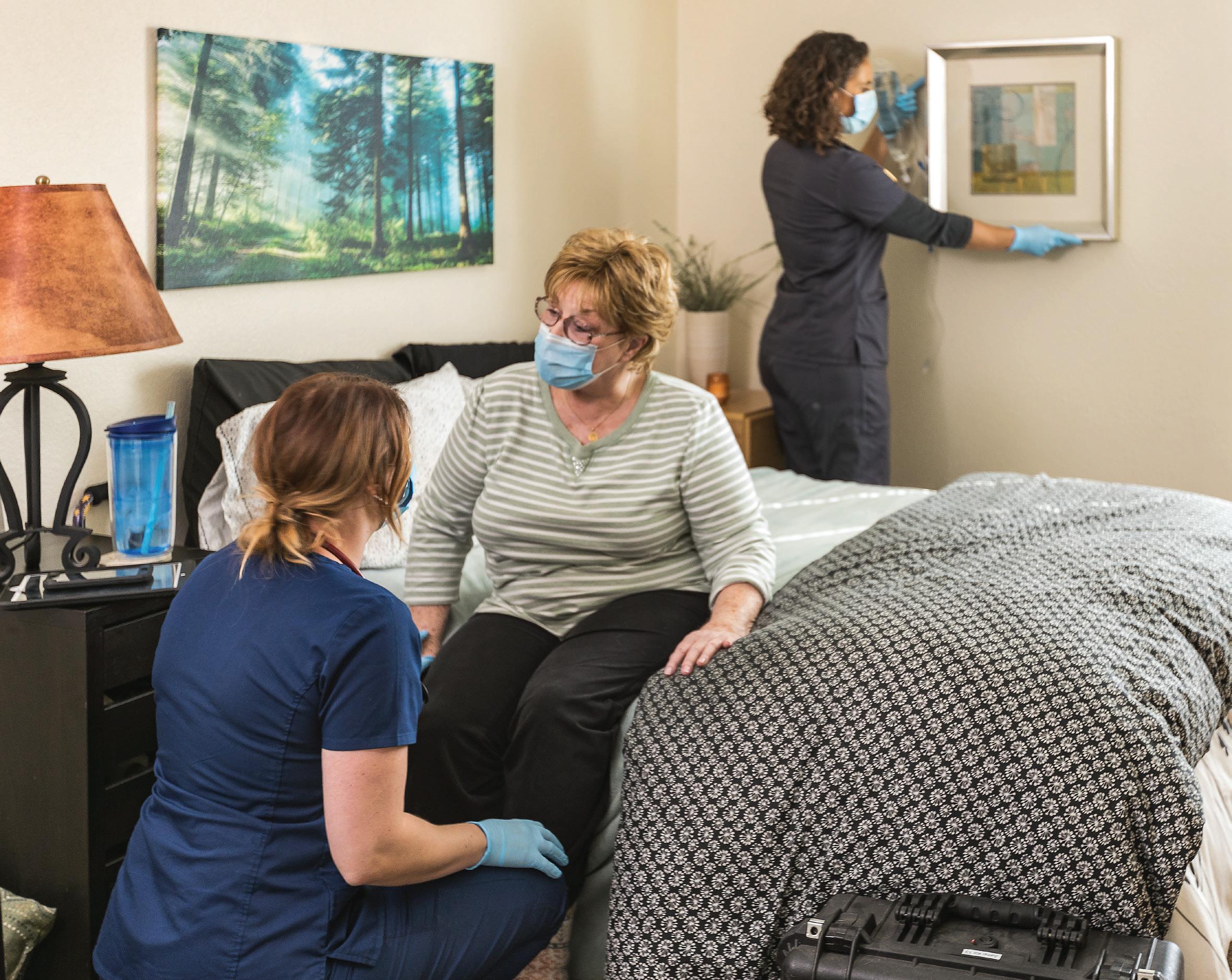
1 minute read
Same-Day Medical Care in the Comfort of Home
from Atlanta Senior Life - April 2021
by Rough Draft Atlanta: Atlanta Intown, Reporter Newspapers, Georgia Voice
And still others on the mental health front believe the pandemic has convinced some seniors who had been reluctant about therapy to seek help when they need it.
Mental health workers said the responses they are seeing make plain the importance of connecting with other people, however that’s accomplished.
“I had a patient today who talked about their church having virtual services and that it’s just not the same,” said clinical psychologist Kirk Bryant. “I’d say that even though it’s not an ideal solution, people need to work on forging links.”
He said regularly scheduled phone calls might help. Maybe writing a letter or sending a gift could be what the doctor ordered. Without regular human connections, he said, not just emotional maladies could worsen, but there also is an increased risk of heart disease and stroke.

For those reluctant or confused by remote technology, Feit has straightforward advice.
You can start simply with better habits, she said. Always change out of the clothes that you slept in. Line out different day and night routines. She suggests journaling to put down what you are experiencing and how it makes you feel. And seek professional help if that feels appropriate.
“Stop being stubborn,” she said. “I would say to those people that nothing is ever going to be as good as [being together] in person. [But] there are so many other roadblocks that we have been faced with that are out of our control. Don’t add another one for yourself.”










